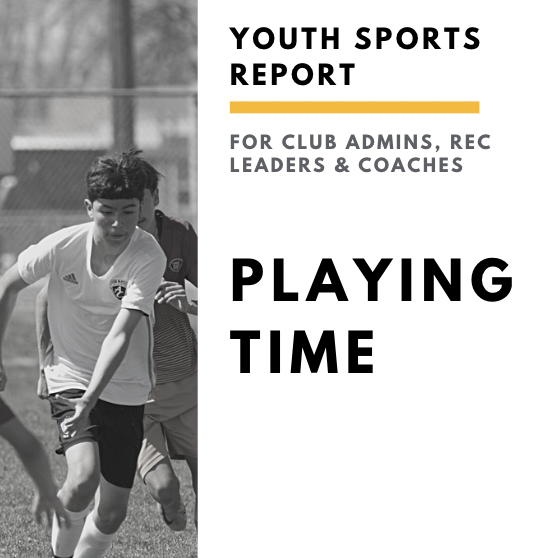Get our exclusive report. Download the iSport360 Club Switching Report Here – For Club Admins, Rec Leaders and Coaches.
Importance of Self-Advocacy in Sports
In the world of youth sports, there’s more to success than just physical prowess and skill. While talent certainly plays a significant role, the ability to self-advocate is equally crucial. In today’s competitive landscape, young athletes must learn how to speak up for their needs, rights, and aspirations. Whether it’s negotiating playing time, addressing safety concerns, or pursuing growth opportunities, self-advocacy empowers young athletes to take ownership of their athletic journey. Let’s delve into why self-advocacy matters and how young athletes can cultivate this invaluable skill.
Understanding Self-Advocacy
Self-advocacy encompasses a range of skills, from effective communication to problem-solving and decision-making. At its core, it’s about speaking up for oneself respectfully and assertively. In the context of youth sports, self-advocacy involves advocating for one’s interests, needs, and well-being within the athletic environment.
The Importance of Self-Advocacy in Sports
1. Personal Development
Learning to advocate for oneself fosters personal growth and development. It instills confidence, resilience, and independence—qualities that extend beyond the realm of sports and into various aspects of life. By taking an active role in their athletic journey, young athletes develop a sense of agency and self-reliance that serves them well in the future.
2. Safety and Well-being
In sports, safety should always be a top priority. Young athletes need to feel empowered to speak up if they encounter risky conditions or situations. Whether it’s reporting an injury, voicing concerns about equipment, or addressing unsafe coaching practices, self-advocacy can help ensure the well-being of athletes and promote a culture of safety within sports organizations.
3. Equal Opportunities
Self-advocacy can also help level the playing field and ensure that all athletes have access to equal opportunities. Whether it’s advocating for fair treatment, challenging biases, or seeking accommodations for individual needs, young athletes can play a role in promoting inclusivity and equity within the sports community.
4. Skill Development
Advocating for oneself requires effective communication, problem-solving, and negotiation skills—essential abilities that translate to success both on and off the field. By honing these skills early on, young athletes can become more adept at navigating challenges, resolving conflicts, and achieving their goals.
How Youth Athletes Can Advocate for Themselves
1. Know Your Rights
Educate yourself about your rights as an athlete. Familiarize yourself with the rules and regulations governing your sport, as well as any policies related to safety, fair play, and athlete welfare. Knowing your rights empowers you to advocate for yourself when necessary assertively.
2. Communicate Effectively
Effective communication is key to self-advocacy. Clearly articulate your needs, concerns, and goals to coaches, teammates, and sports administrators. Be respectful but assertive, and don’t be afraid to speak up if something is bothering you or if you need support.
3. Be Proactive
Take a proactive approach to advocating for yourself. If you have specific goals or aspirations, don’t wait for opportunities to come to you—seek them out. Whether it’s asking for extra training sessions, seeking feedback from coaches, or exploring leadership opportunities within your team, be proactive in pursuing your passions and interests.
4. Build a Support Network
Surround yourself with a supportive network of teammates, coaches, mentors, and family members who can help advocate for you when needed. Having allies who believe in your abilities and advocate on your behalf can bolster your confidence and reinforce your efforts to advocate for yourself.
5. Stay Informed and Empowered
Stay informed about developments and issues within the sports community. Educate yourself about topics such as athlete rights, mental health awareness, and injury prevention. The more informed and empowered you are, the better equipped you’ll be to advocate for yourself and others.
Self-advocacy in Sports
Self-advocacy is a vital skill for young athletes navigating the world of sports. By learning to advocate for themselves effectively, athletes can promote their well-being, confidently pursue their goals, and contribute to a positive and inclusive sports culture. Empowering youth athletes to speak up and assert their rights not only benefits individual athletes but also strengthens the integrity and inclusivity of the sports community as a whole. So, let’s encourage young athletes to find their voices, stand up for what they believe in, and advocate for themselves every step of the way.
iSport360 is the only app that does it all for youth sports. For more information on what we do, click here.
About the author:
Amy Masters is a sports mom, coach, and club administrator. She has been coaching youth sports for more than 10 years. She started Jr Lions Field Hockey, the youth recreation program for the Hunterdon County community growing it from 40 players in year 1 to 150 players by year 3. A few years later, she saw the love and competitiveness grow then started Omega Field Hockey Club serving NJ and PA players. Before coaching, she was a collegiate field hockey player for Lock Haven University. In her spare time (lol), she is head of marketing for iSport360, where she brings her love of sports to a bigger audience.
Learn more or request a demo of our youth sports software that is helping teams improve communication, organization and player development.
February 7, 2024





